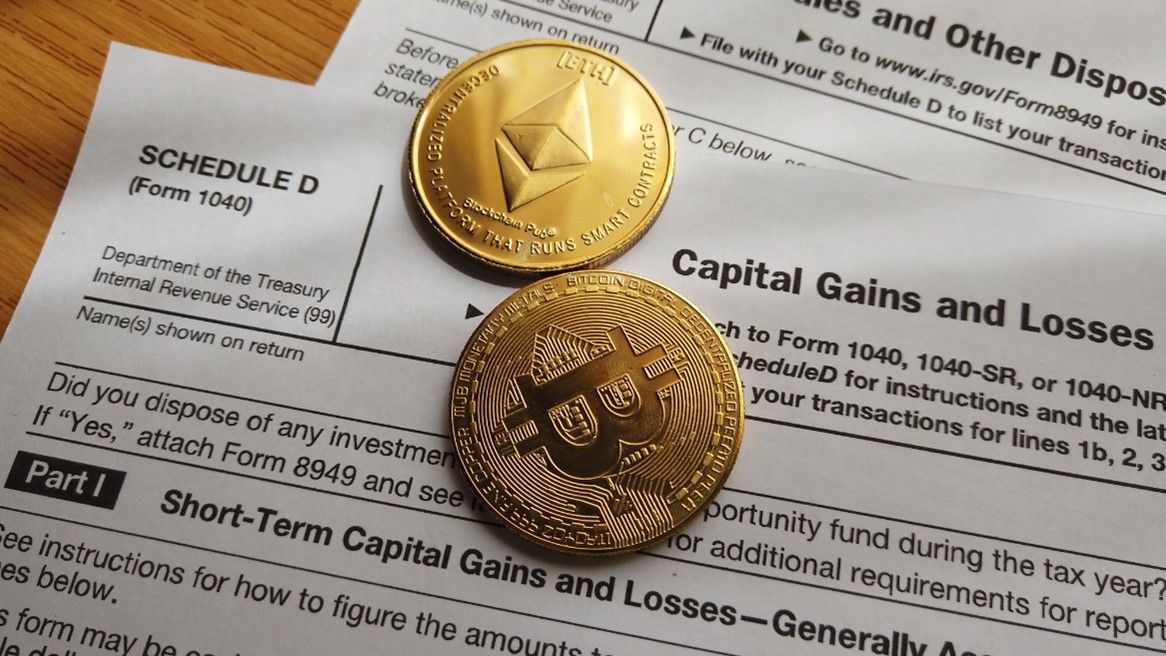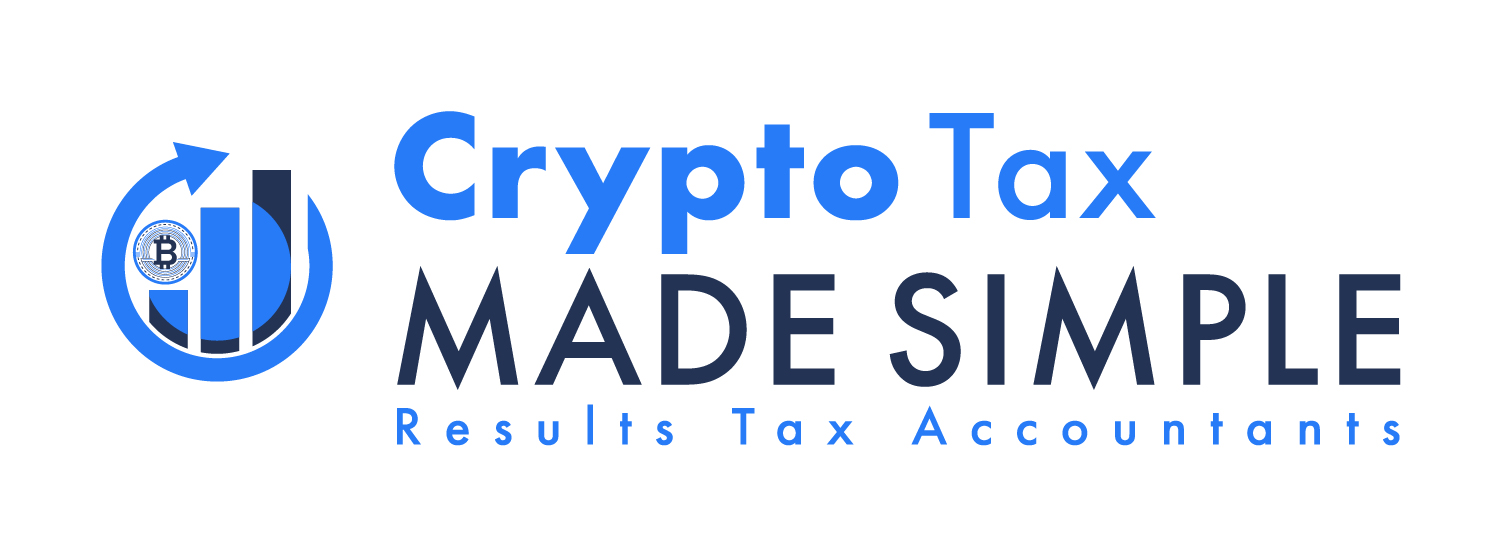
As of 2022, 21% of American adults have owned cryptocurrency. It’s become so big, you can hear whispers of “Bitcoin” and “mining” from people far removed from the crypto world. Google searches of “crypto CPA near me” have spiked. There’s universal interest in virtual currency.
At this point, investors of all kinds are actively entering the digital money market. Whether you’re new or already a seasoned stakeholder, understanding crypto taxes is critical to investment success.
Too many traders, investors, and miners wait until they have a colossal crypto tax liability before seeking help with a crypto CPA. This can threaten to destroy your returns and wealth-building potential.
When it comes to crypto taxes, many people don’t have the time or interest to learn about them, like how much to pay on crypto gains to fulfill legal requirements. Once they realize they’re in hot water, it seems impossible to locate crypto CPAs that can help.
Can a general CPA do crypto taxes? Some accountants can. Most tax professionals will only be somewhat familiar. They may struggle with your tax matters. He or she may not know specific cryptocurrency tax loopholes, potential tax deductions or tax credit you may be legally eligible to take.
Therefore, you could miss out on hundreds if not thousands of dollars in tax savings. Moreover, even a seasoned, general certified public accountant (without in-depth crypto taxation knowledge) could make tax mistakes. This could create problems for you in the form of penalties and fines. You don’t want to go through an emotionally disturbing wrestling match with the IRS that could go on for months by choosing a low cost tax preparer.
However, there’s a shortage of accounting professionals that specialize in cryptocurrency. Few accountants understand what hundreds or thousands of virtual currency transactions and digital assets require.
This article will explore how crypto taxes work, the top crypto tax pain points investors face, and how to hire the best crypto tax CPA you can find.
What is a Crypto CPA?
CPA stands for “Certified Public Accountant.” However, crypto CPAs are a lot different than a regular CPA. First, a cryptocurrency CPA must pass the Uniform CPA Examination, which has four sections: Auditing and Attestation (AUD), Business Environment and Concepts (BEC), Financial Accounting and Reporting (FAR), and Regulation (REG). Plus, a cryptocurrency CPA will have specialized training, advanced professional designations and a lot of experience handling a lot of complex cryptocurrency taxation situations.
A CPA with crypto experience will help you save money on your taxes with current and future returns. A crypto specialized accountant’s fees for tax returns, accounting and other help services will vary depending on their knowledge and expertise.
Taxing Cryptocurrency
In 2014, the IRS issued its first guidance on the taxation of cryptocurrency. This document concluded that crypto transactions are taxable events and should be treated as “property” for federal income tax purposes. As a result, profits are taxed using the long-term and short-term capital gains rates, the same rates used when you sell stock.
Your exact crypto tax rate depends on the length of time the asset was held and your overall income. It typically ranges from 0-37%. These trades are reported on Form 8949.
Accurate crypto accounting requires tracking the cost basis and prices (in USD) for all cryptos across all exchanges used. You can see how this can quickly turn into an accounting nightmare.

Top 7 Problems a Crypto CPA Can Help You Solve
Let’s look at how a cryptocurrency CPA can resolve challenges. Here are seven problems they can help you solve:
Problem #1.) Lack Of Understanding How Crypto Is Taxed
Every time a coin or token is sold, it’s considered a capital transaction. The profit or loss from each transaction is reported on form 8949, which then flows to Schedule D, and then to your individual return on form 1040. This determines how much tax you pay on crypto gains.
Common Questions Investors Ask About Crypto Tax Include:
- Is exchanging crypto for other virtual currencies a taxable event?
- Does a transfer between wallets create a tax?
- Is there a tax when you buy goods and services with crypto?
- Is exchanging crypto for dollars a taxable event?
Searching online for a “cryptocurrency CPA near me” will help get those questions answered fast.
Problem #2.) Confusion/Uncertainty About How Crypto Tax Laws Apply To Your Unique Situation
Just because you don’t fully understand the laws surrounding crypto taxes, it doesn’t mean you should miss out on all the tax breaks you’re legally entitled to. Many areas of the tax code for crypto are not straightforward. A CPA with crypto experience can help you sort all of that out.
Issues dealing with the tax treatment of airdrops, forks, and NFTs (characterization, basis, and recognition of income), are up for debate, even among CPAs. Thus the importance of hiring a tax advisor with crypto experience. The same goes for mining; there are complexities regarding compliance.
Problem #3) Unreported Crypto Risks And Problems
What happens when the IRS finds your unreported crypto? IRS letters have gone out to tens of thousands of people who had crypto transactions in previous years and have yet to report them. This can lead to enormous fines, penalties, and a severe fraud issue with the IRS.
Additionally, the new individual 1040 income tax form has a checkbox that asks, “At any time during the tax year, did you receive, sell, send, exchange, or otherwise acquire any financial interest in any virtual currency?” If you check “No” but have had crypto transactions in the prior year, that’s filing a false return.
The best crypto CPAs can help you find every transaction and ensure it’s reported to the IRS in a timely manner.
Problem #4) Missing/Lost Crypto Tax Data
Your crypto tax accounting must include accurate data you extract from exchanges on your records. You can’t complete form 8949 on your basic tax return without the information for each cryptocurrency transaction. Then, you won’t be in compliance with the IRS or your state authority.
Poor recordkeeping and the loss of transactional data can dramatically increase the cryptocurrency tax you pay. A CPA crypto expert can provide tax services that keep your records updated and accurate, with a clean audit trail.
Problem #5) Avoiding Fine, Aduits, Penalties, and Interest
Miscalculations of capital gains and losses are common among non-tax professionals. When complex calculations are done incorrectly, people could have a higher tax liability.
Subsequently, not understanding the tax code may result in submitting facts incorrectly. A cryptocurrency tax CPA will help you avoid fines and penalties by recognizing exactly which transactions are tax-reportable and filing accordingly.
Problem #6) Problems Using Crypto Accounting Software
Although advertising by top brands will tell you how easy it is to upload data and push a button, nothing could be further from the truth. There are thousands of currencies on hundreds of exchanges.
Like any other software platform, things can get confusing, and if you handle more than a few cryptocurrency transactions a year, you’ll probably need help.
A crypto CPA can recommend the best type of Crypto software or, better yet, do all the crypto tax accounting for you. For example, some crypto tax software is incompatible with certain crypto coins or exchanges. Rather than manually inputting thousands of transactions, a cryptocurrency CPA can manage it for you.
Problem #7) Lack of “Crypto CPAs Near Me”
While you may be frantically searching Google for a “crypto tax CPA near me,” nothing may come up. Many accountants don’t want to touch cryptocurrency due to the risk.
There’s a shortage of accounting professionals with the technical understanding required to account for and reconcile hundreds of thousands of virtual currency transactions.
Very few CPAs for cryptocurrency can accurately prepare a crypto tax return for investors, miners, and traders. Therefore, you need a professional to help you with crypto tax planning and wealth-building strategies. They will run your transactions through several different accounting methods to help find the lowest tax liability.
The truth is you do NOT need a virtual currency CPA near you…
Any crypto tax accountant or crypto-trained tax preparer in the United States can help you with all your needs and state reporting and filing requirements. It doesn’t matter what state you live in. It doesn’t matter if your tax pro is in a different state.

9-Step Process To Find And Choose The Best Crypto CPA
Now that you know how difficult it may be to find an expert in crypto accounting and taxation, it’s time to make a plan. Here are a few steps in the process of finding a crypto tax professional that fits:
Step #1.) Ask The Crypto Certified Public Accountant How The IRS Treats Cryptocurrency
This will tell you the extent of their knowledge of how virtual currency is taxed. The IRS views it as property, which means cryptocurrency is taxed similarly to a car or a house. However, cryptos are not currencies for tax purposes. A crypto tax expert with experience will be able to explain that and the consequences thereof.
Step #2.) See If The Cryptocurrency CPA Can Give You A Broad Overview Of Crypto Taxes
Selling virtual currencies will not be the only time crypto transactions are taxed. Anytime crypto is transferred out of your wallet, exchanged for fiat, or transferred to another wallet, are all examples of a taxable event. Inaccurate tracking of these FMVs at the date of purchase, sale, and disposition could be financially devastating.
Step #3.) See If The Crypto CPA Stays Abreast of Current And Changing Crypto Tax Legislation
Cryptocurrency CPAs need to be able to guide their clients accordingly. Unfortunately, federal agency views on cryptocurrencies are uncertain and inconsistent. Laws can change at the drop of a hat, and you may be too busy to notice. That’s where a trusted tax accountant comes in.
The IRS and the SEC are the two leading federal agencies releasing guidance and interpretations on crypto tax law. The SEC focuses on investors, broker-dealers, investment advisers, capital markets/exchanges, and transfer agents.
The IRS tends to focus on using crypto as a medium of exchange, a store of value, and a unit of account, as well as various tax reporting and disclosure requirements for transactions. Virtual currency tax CPAs should be aware of the current approaches, interpretations, and enforcement processes for these two federal agencies.
Step #4.) Ask How They Use Your Tax Basis to Record Transactions
The cost basis in crypto is the amount you spend to purchase coins and tokens, including fees. Over time, this adjusted basis will increase due to expenses, and decrease by credits and deductions. When you sell crypto, the gain or loss is calculated by subtracting the adjusted basis from the FMV at the time of the sale.
The best crypto taxation and accounting CPA will be able to explain how, when, and under what circumstances you would have to recognize a gain or loss when you exchange cryptocurrency for real money.
Step #5.) Inquire About Crypto Transactions That Are Ordinary Income vs. Capital Treatment
Your crypto CPA should be able to convey this information thoroughly. Anything staked, mined, or earned from free token giveaways, ICO (initial coin offering) proceeds, or airdrops is considered ordinary income.
Once you hold any of these items and then sell them later (or dispose of them), the crypto transaction receives capital treatment. This will be either a long-term or short-term capital gain or loss, depending on the length of time you hold them.
Step #6) Is There Additional Reporting? The CPA Should Know
Many cryptocurrencies will satisfy the SEC’s definition of security, and will have to be registered or exempted.
If you host an online platform that sells cryptocurrencies deemed “securities,” the SEC will probably want you to register as an “exchange.” They’ll also want the individuals operating the platform to be registered as “investment advisers” or “brokers-dealers” under the federal securities laws and Investment Advisers Act.
Step #7) Ask The Accountant If Your Business (Or Crypto Activity) Necessitates Other Reporting Or Legal Obligations
You may require actions beyond IRS reporting and SEC registration. Cryptocurrency CPA firms should be able to convey this information to you.
For example, if your company involves certain crypto-transmitting services, you may have to apply for a money transmitter license (MTL) under FinCEN rules and the Bank Secrecy Act.
If you hold cryptocurrencies in a foreign exchange account, you may have to file an FBAR report on a FinCEN Form 114. This is called the Report of Foreign Bank and Financial Accounts.
Step #8) What Crypto Accounting Software Does Your CPA Use?
Ask this question early on. Cryptocurrencies and blockchain apps are innovative technologies that not all federal agencies, investors, or even CPAs, fully grasp. The crypto accounting and tax pro you choose should be able to explain how their software reconciles gains and losses for clients. The best crypto tax CPA will tackle new tech with specilaized features tailored to cryptocurrency tracking.
How do you know whether hiring a CPA cryptocurrency expert is worth it? Their software will do most of the work. If your virtual currency tax expert says they reconcile any transactions by hand, that’s a major red flag. Tracking EMVs across a variety of exchanges for multiple coins is nearly impossible without some form of specialized software.
Do You Need A CPA For Crypto On Your Side To Mitigate Tax Risks?
Future taxation and additional regulation are both real risks to the current market. Some governments are putting a stranglehold on cryptocurrency, while others have outlawed them completely.
In many countries, legislative regulation of crypto and taxation of transactions for digital money is still being worked out. So far, many big banks have decided not to view cryptocurrencies as legal tender, since they are not subject to state regulations.
Italy is a prime example of the trust of state institutions in cryptocurrency. Pierro Cipollone, who is the Deputy Governor of Banca d’Italia (Italy’s top bank), has stated that the cryptocurrency market is moving too faster for regulators.
They are still unsure of what actions to take to prevent fraud, money laundering, or the sponsorship of terrorism. Sometimes, the banks’ actions are illogical, negatively affecting the crypto sphere and creating an imbalance in the general mood toward digital money.
Regardless of risks, crypto is a new asset class, and in another decade, everyone will find uses for blockchain.
Conclusion
Do you need a crypto CPA? How much does a crypto trained accountant charge? These are valid questions; the answer is a resounding YES, and what they charge will depend on experience. Due to risk, some virtual currency tax consultants will only deal with big-time clients.
The IRS believes that crypto transactions are severely underreported or, worse, falsely reported by U.S. taxpayers. That means investors, miners, and other crypto professionals are under a microscope. The agency has responded by increasing investigations for tax evasion and false reporting. There is no place left to hide.
Although it may be challenging to understand crypto laws or locate a cryptocurrency CPA, you must seek professional help. If you find it difficult to do your own taxes, can you imagine the complexity involved in calculating thousands of transactions?
The IRS works with other federal agencies like the FBI and DOJ when the taxpayer is engaged in perceived criminal activity. That’s why it’s so important to find a representative to act on your behalf before the IRS starts poking around.
Due diligence is required when selecting the best crypto CPA. Make sure they thoroughly understand how the IRS treats crypto, stay abreast of current legislation, and use top-tier software. As long as you have a knowledgeable crypto tax accountant on your side, you can breathe easy that everything is filed correctly, giving you more time to focus on growth and business success.


